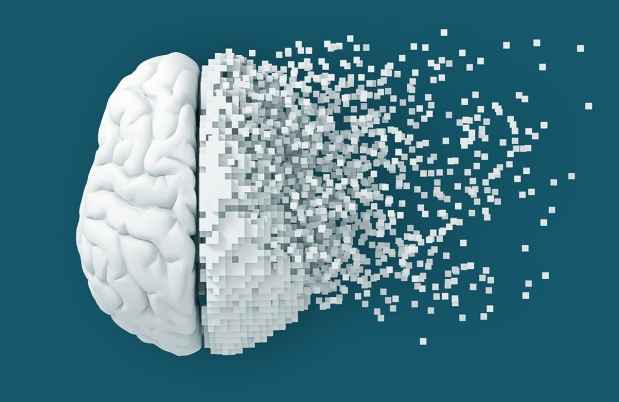Support, Treatment, and Resilience Program
STAR offers outpatient mental health care for teens and young adults
The Support, Treatment, and Resilience (STAR) Program delivers high-quality outpatient care to teens and young adults ages 14-25 who are at risk of mental health conditions that can cause psychosis.
The program offers psychosis risk assessment, individual therapy, medication management, and family support for young people who are experiencing changes that impact thinking, emotions, behavior, and functioning that may indicate an increased risk for psychosis.
For more information or to make a referral, please call 617.855.3515.

STAR provides early intervention treatment for teens and young adults at risk for developing psychosis
An individual may be at risk for developing psychosis if they have experienced a new onset of mild psychosis symptoms within the past year or have had a recent decline in functioning and also have a close relative (e.g., sibling, parent) who has experienced psychosis.
If you or your loved one started experiencing any of these changes within the past year, STAR may be able to help:
- Feeling confused about whether something was a dream or if it happened
- Changes in thought content (including suspiciousness), emerging odd thoughts, or unusual beliefs
- Perceptual experiences, such as increased sensitivity to sights, sounds, hearing one’s name being called, or hearing or seeing things that others do not
- Wondering whether others can read your mind
- Finding meaningful connections between unrelated events
- Difficulty thinking clearly/concentrating or expressing thoughts
- Decreased motivation
- Withdrawing from friends and family
- New problems at school or work, including a decline in grades or difficulty completing assignments
- Trouble maintaining hygiene
STAR is covered by most insurance carriers. Length of treatment varies depending on the needs of the individual. Maximum length of treatment is 3 years.
For those who are seeking treatment following a first episode of psychosis, please consider McLean OnTrack.
Treatment Approach
The goal of the STAR Program is to intervene early to promote mental well-being, develop coping skills, decrease risk factors related to psychosis and other mental health conditions, and improve functioning at home, school, work, and in social settings.
For young adults who experience symptoms related to risk for psychosis, evidence indicates that strengthening resilience-enhancing skills and treating symptoms as early as possible may help to reduce the risk of developing serious mental health conditions, decrease distress, improve short- and long-term functioning, and improve one’s ability to have meaningful and satisfying social relationships.
With a focus on resilience and cognitive behavioral therapy (CBT) techniques, the STAR Program helps teens and young adults understand their unique risk factors related to psychosis risk and develop skills and customized wellness plans to manage symptoms, stress, emotions, and uncertainty.
STAR’s clinicians focus on assisting patients to maintain daily routines, set and meet goals, foster supportive social networks, and engage in self-care.
Treatment is customized for each individual, with different treatment components included dependent on the patient’s clinical needs and recovery goals.
Our staff creates treatment plans geared to the specific needs, values, identities, strengths, and culture of the individual.
Treatment can include:
- Psychosis risk assessment, treatment planning, and education
- A brief course of psychotherapy for psychosis risk symptoms
- Combined treatment including ongoing individual therapy, medication treatment, and if indicated, brief family therapy
An important part of our mission is to work toward developing effective and individualized treatments by conducting scientific research. Therefore, we also provide opportunities to voluntarily participate in research studies aimed at understanding early identification and intervention for psychosis risk. Though patients may be asked to take part in research, participation is not required and does not affect access to care.
Admission
The STAR Program is ideal for adolescents and young adults ages 14-25 who are experiencing changes in thoughts, behavior, emotions, or functioning in the past year and have been identified as being at risk for developing psychosis.
Our outpatient program is for individuals who live in Massachusetts.
Please note that the STAR Program is not a first episode of psychosis program. STAR is not appropriate for individuals who have a new or established psychosis diagnosis (such as schizophrenia, bipolar disorder, or depression with psychosis, etc.), or who have been recently hospitalized for psychosis symptoms.
Speaking with a trained professional about diagnosis and treatment is a critical first step in early intervention and in understanding and addressing the problem.
For further information about the program or to get help for yourself or your loved one, please contact:
Phone: 617.855.3515
Email: @email
Referral Form
Prior to admission, we review an individual’s referral application to determine whether the program is a good fit for the individual.
The referral form below can be completed by the individual seeking services, a family member or loved one, or a referring provider. Referring providers and family members must complete the form with the individual being referred.
Please be sure to fill out the form in full as only completed referral forms are reviewed.
Cost
STAR is covered by most insurance providers.
McLean Hospital accepts Medicare, Massachusetts Medicaid, and many private insurance and managed care plans. More information on insurance providers accepted by McLean Hospital may be found on the Mass General Brigham website.
You may also find it beneficial to review McLean’s patient billing and financial assistance information.
Treatment Team
Program Leadership

Emily E. Carol, PhD, Clinic Director
Dr. Carol’s expertise is in early identification and intervention for emerging serious mental illness in teens and young adults, including psychosis spectrum and bipolar disorders. Her clinical and research interests include the etiology, trajectory, and treatment of psychosis spectrum disorders. She is particularly interested in the relationships between stress, family environment, and symptom recovery. Dr. Carol is also a member of the Laboratory for Early Psychosis (LEAP) Center.

Perihan Esra Guvenek-Cokol, MD, Medical Director
Dr. Guvenek-Cokol is a double board certified child, adolescent, and adult psychiatrist. She specializes in emerging mental illness in teens and young adults. Her expertise is in early stages of psychotic and bipolar disorders, along with anxiety and obsessive compulsive disorders. Dr. Guvenek-Cokol is also the medical director of the Child and Adolescent OCD Institute (OCDI Jr.).

Joseph Stoklosa, MD, Clinical Director, Division of Psychotic Disorders
Dr. Stoklosa is also the assistant program director for the MGH/McLean Adult Psychiatry Residency Training Program. He is actively involved in educational research and founded the Clinician Educator Program for the MGH/McLean residency program. Dr. Stoklosa also developed the Schizophrenia and Bipolar Disorder Inpatient Program’s clinical care model, which is focused on improving the use of evidence-based treatment.
Staff and Associates
At STAR, our psychologists and clinical social workers work together with our psychiatrists. The team strives to build trusting and collaborative relationships with patients and family members in a caring and supportive environment.
The STAR Program operates within the Division of Psychotic Disorders, led by Dost Öngür, MD, PhD.
Frequently Asked Questions
Where is STAR located?
The program is located on the Belmont campus in the Admissions Building. For more information on directions, parking, and local accommodations, please visit our Maps & Directions page.
Who benefits most from the STAR Program?
STAR’s outpatient care focuses on early intervention for symptoms that may or may not lead to a psychotic disorder. Teens and young adults ages 14-25 may be experiencing changes in thoughts, emotions, functioning, or behaviors.
Is family involved in treatment?
Family involvement in their loved one’s treatment is strongly encouraged. We offer support for family members.
Is smoking permitted?
Smoking is allowed in designated outdoor areas only. No smoking is allowed inside any of our buildings.
Are cell phones allowed?
Cell phone use is strongly discouraged during treatment and in the waiting room to prevent disruption of the program and others.
Can former patients access their medical records?
All requests for medical records should be directed to McLean’s Health Information Management Department.
Call Us Today
Let us help you find the care your child needs. Contact us today to talk about our program.



